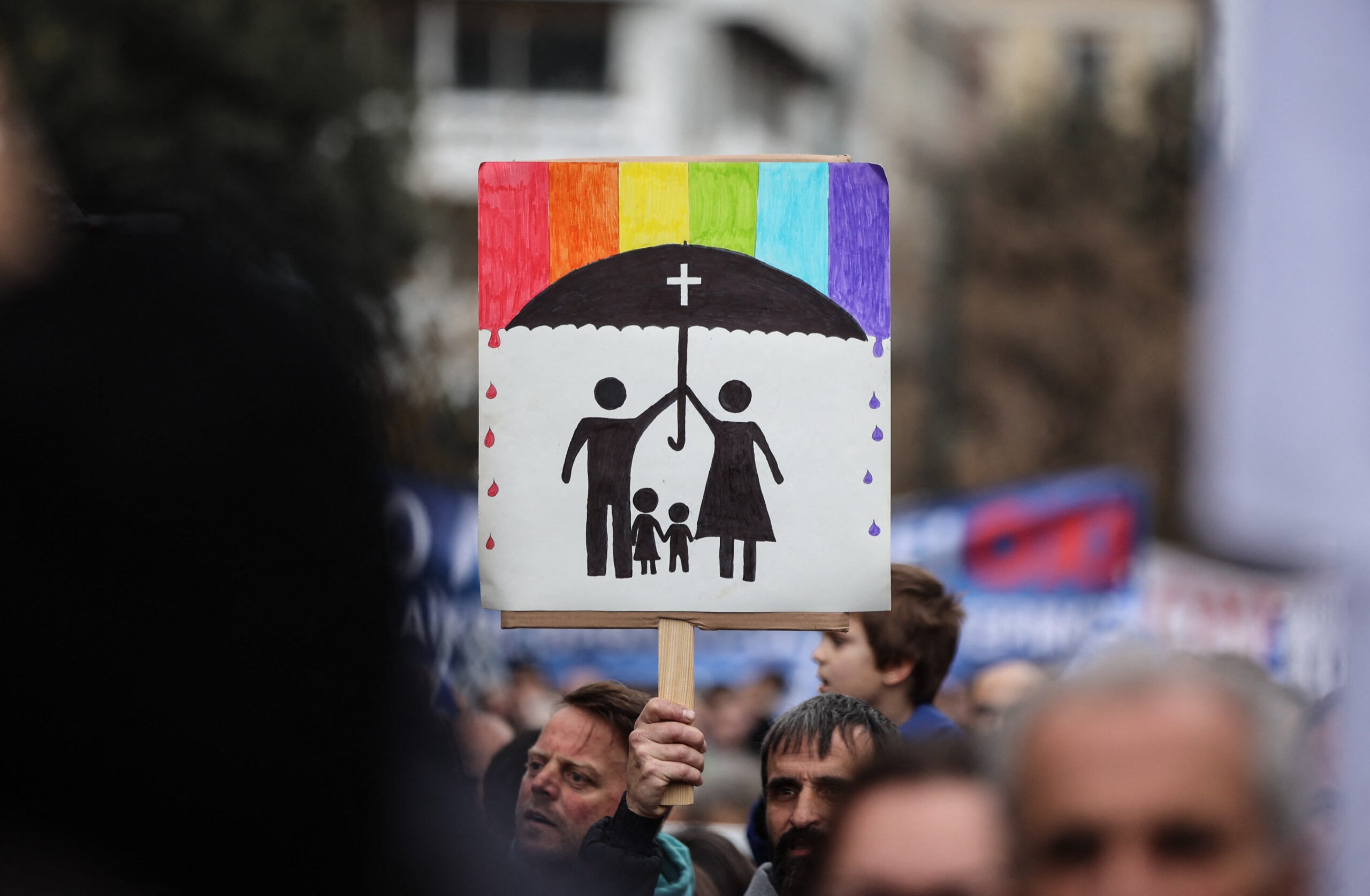On Thursday February 29, Ghana’s parliament unanimously passed a bill which, if enacted into law by the president, will see LGBTQ+ relationships criminalized – as well as support for LGBTQ+ rights. Just one day later, in an address to participants at a Vatican conference, Pope Francis denounced an “ugly ideology of our times” that threatened humanity. The 87-year-old pontiff went on to explain exactly what he meant: “Today, the ugliest danger is gender ideology which cancels differences [between men and women]. Cancelling out differences means cancelling out humanity.”
“Gender ideology” is a term that has come to encapsulate everything from the rights of LGBTQ+ people through to reproductive rights (such as access to abortion care or contraceptives), sexuality education in schools and the attempts to advocate for equal rights, representation and protection for women and girls. And it is increasingly being used to foment fear, build political power and push back against hard-won advances in women and LGBTQ+ rights.
This global, often connected, backlash threatens not just the development agenda, and the possibility for women and queer people all over the world to live without discrimination or bigotry. It is also said to threaten our very democracies – whether well established or nascent.
And so, CNN As Equals has identified and profiled 30 people whose lives and work respond to the challenges posed by anti-gender movements from Afghanistan to the United States. Their courage and commitment, often in the face of personal danger, is inspiring and necessary.
You can also explore the list of Latin American defenders: Conoce las defensoras de Latinoamérica y mira aquí la lista global de defensoras en español
Activists
They are most often on the frontline, holding feet to the fire, calling out the causes of gender inequality or LGBTQI+ discrimination.
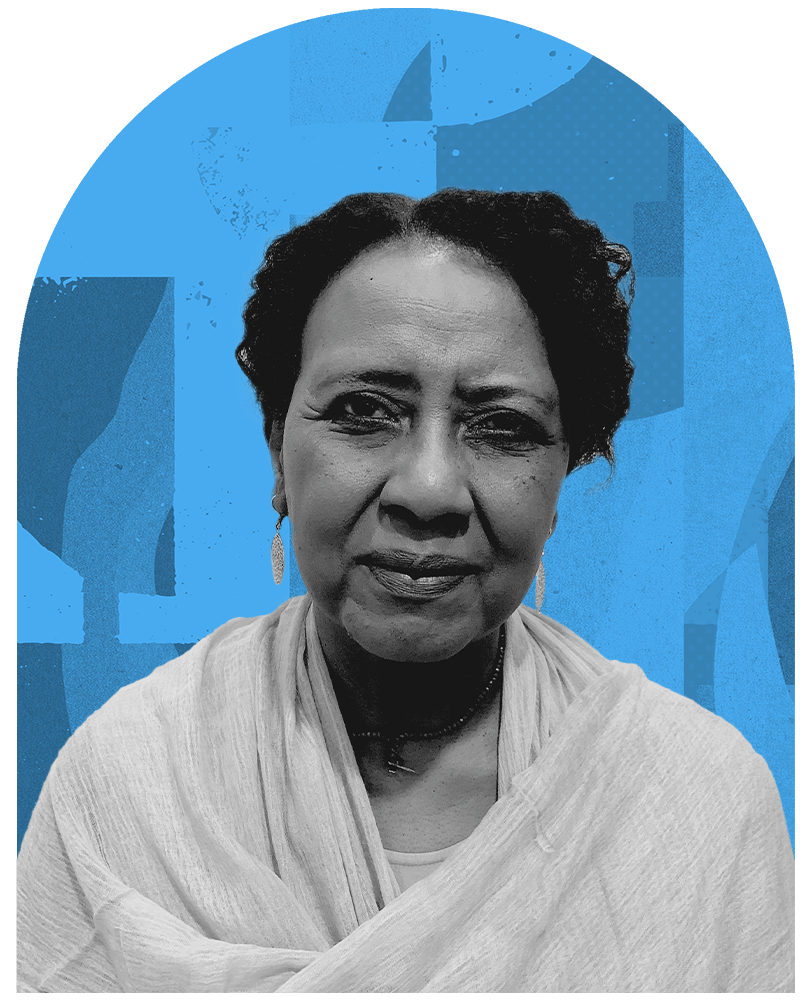
Hala Al-Karib
Regional Director, Strategic Initiative for Women in the Horn of Africa (Sudan)
Hala Al-Karib, is an activist and researcher who is at the forefront of advocating for the rights of women in Sudan and the Greater Horn of Africa region.
Sudanese women played a key role in the revolution that led to the overthrow of the government of Omar al-Bashir. But as the East African nation has descended into civil war, women have been especially vulnerable to gender-based violence, including sexual violence that’s used as a weapon of war, according to the UN.
It is in this context that Al-Karib, who works between Uganda and Sudan, continues to advocate for the inclusion of women in peace and security processes all over Africa, warning that failure to do so only “prolongs violence.”
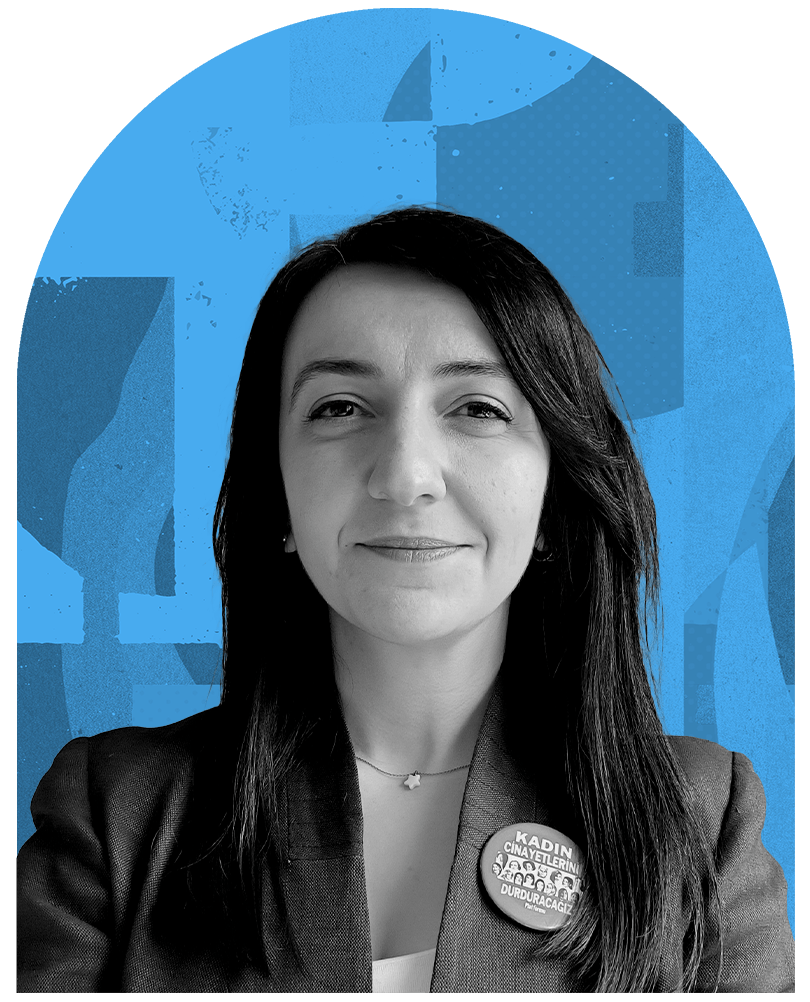
Fidan Ataselim
Secretary-General of We Will Stop Femicides (Turkey)
Fidan Ataselim is the secretary-general and one of the founders of We Will Stop Femicides, a platform that monitors femicides in Turkey and advocates for women’s safety. The group was targeted by conservatives after it spoke out against Turkey’s withdrawal from the Istanbul convention, the world’s leading treaty on gender-based violence, in 2021.
Attacks on the treaty have been one of the strategies of the anti-gender movement and We Will Stop Femicides argues femicide in Turkey have increased since the withdrawal. Data collected by the group reveals that in 2023, 315 women were murdered in Turkey, 65% of them were killed in their own homes.
In September 2023, after an Istanbul court rejected attempts to have the group shut down for “acting against the law and morality,” Aselim was quoted as saying: “We will continue to fight. We will not give up our rights and political struggle.”
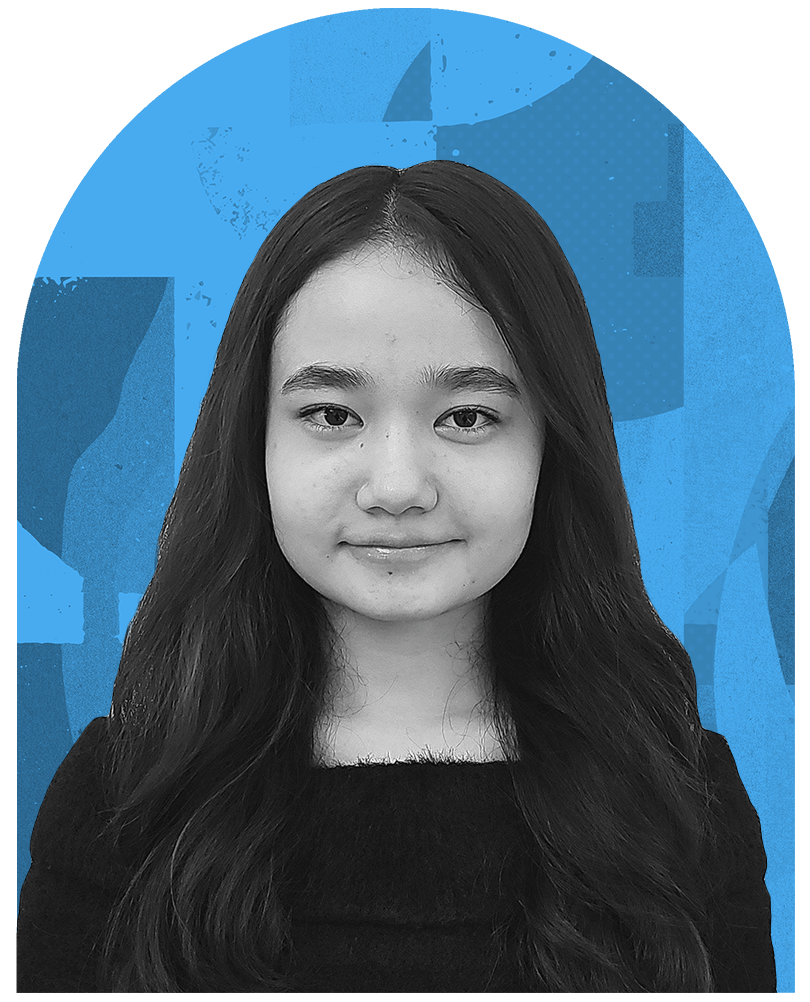
Nila Ibrahimi
Women’s Rights Activist (Afghanistan)
Nila Ibrahimi is a young activist, raising awareness about the struggle for girls’ and women’s education rights in Afghanistan.
Belonging to the Hazara ethnic minority group, 16-year-old Ibrahimi escaped Afghanistan days after the Taliban took control on August 15, 2021. The Taliban’s crackdowns have seen a systematic attack on all women’s and girls’ freedoms, from the right to education, right to free movement. The Taliban has also dismantled services for those experiencing domestic violence.
In her address at the Geneva Summit in 2023, Ibrahimi appealed: “In the darkest of times, hope becomes our lifeline. It is our collective responsibility to be their hope, to stand with them, and to take action.”
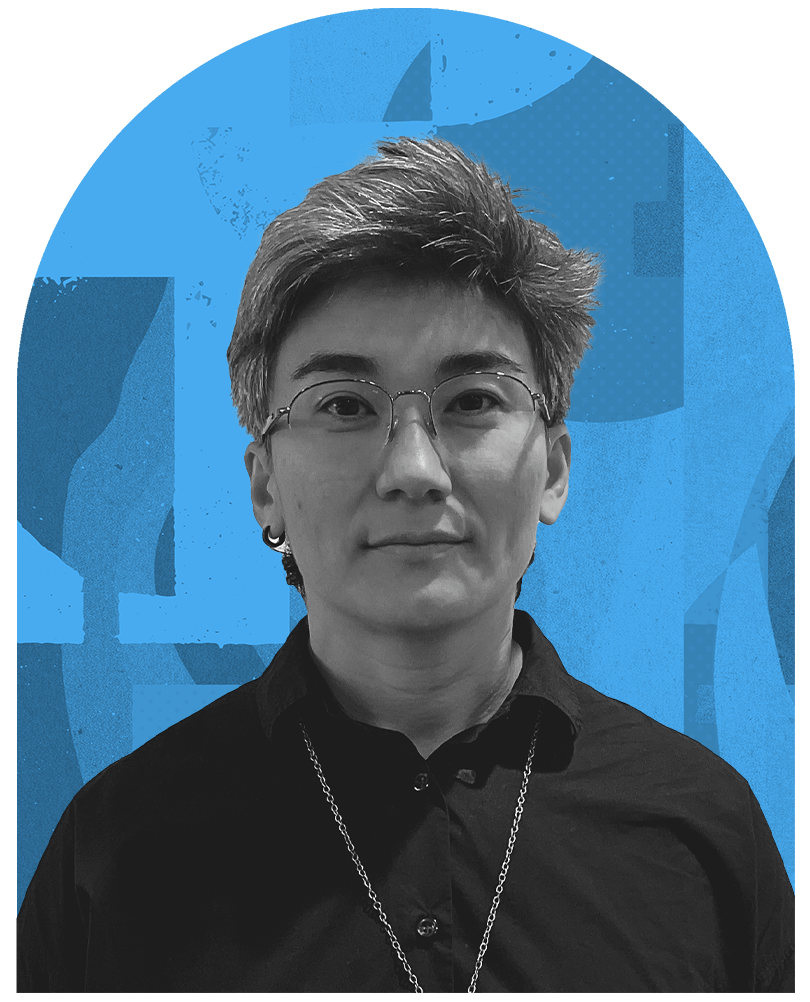
Zhanar Sekerbayeva
Co-founder Feminita (Kazakhastan)
Zhanar Sekerbayeva is the co-founder of Feminita, a Kazakhstani feminist initiative working to protect the rights of vulnerable groups such as women, queer and trans women, and sex workers.
In a country with high levels of domestic violence against women, and ongoing discrimination and abuse against the LGBTQ+ community, Sekerbayeva’s organization pushes for these oppressed populations to be heard, stating it is “not afraid” of feminism.
In an interview with Amnesty International, the activist said she is “motivated by anger,” explaining that her government, the police and homophobia make her angry, adding that she has been arrested, charged, and herself attacked because of her sexuality.
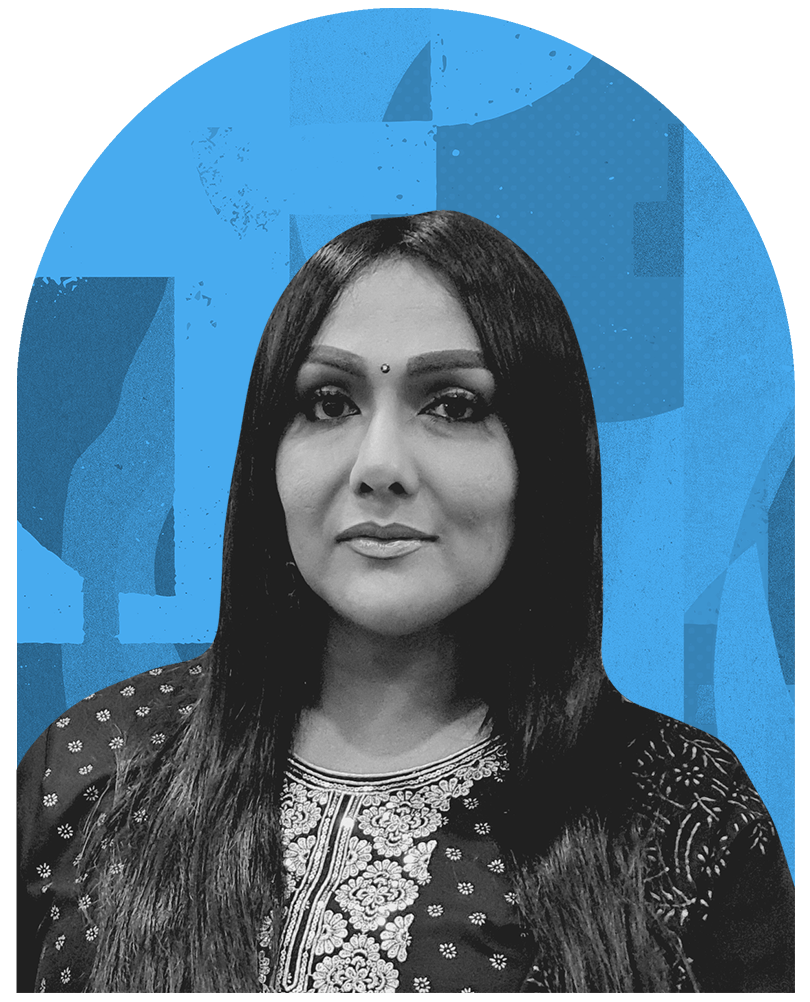
Nisha Ayub
Co-founder of Justice for Sisters and SEED (Malaysia)
Nisha Ayub is a prominent Muslim transgender activist in Malaysia and one of the founders of Justice for Sisters and SEED Malaysia – both organizations working for justice for transgender people.
Justice for Sisters is raising public awareness of violence and persecution faced by Malaysia’s transgender community, which she herself experienced after being arrested under Sharia law for the clothes she was wearing.
SEED describes itself as a place “where compassion and inclusivity flourish.” It exists to provide Malaysia’s transgender community with safe space, enabling them to find resources, support and community.
In December 2023, Justice for Sisters called out the arrest of five trans women in Ipoh city under the state Sharia law. The organization said this was “just the latest in a growing trend of raids targeting LGBTIQ people in Malaysia.”
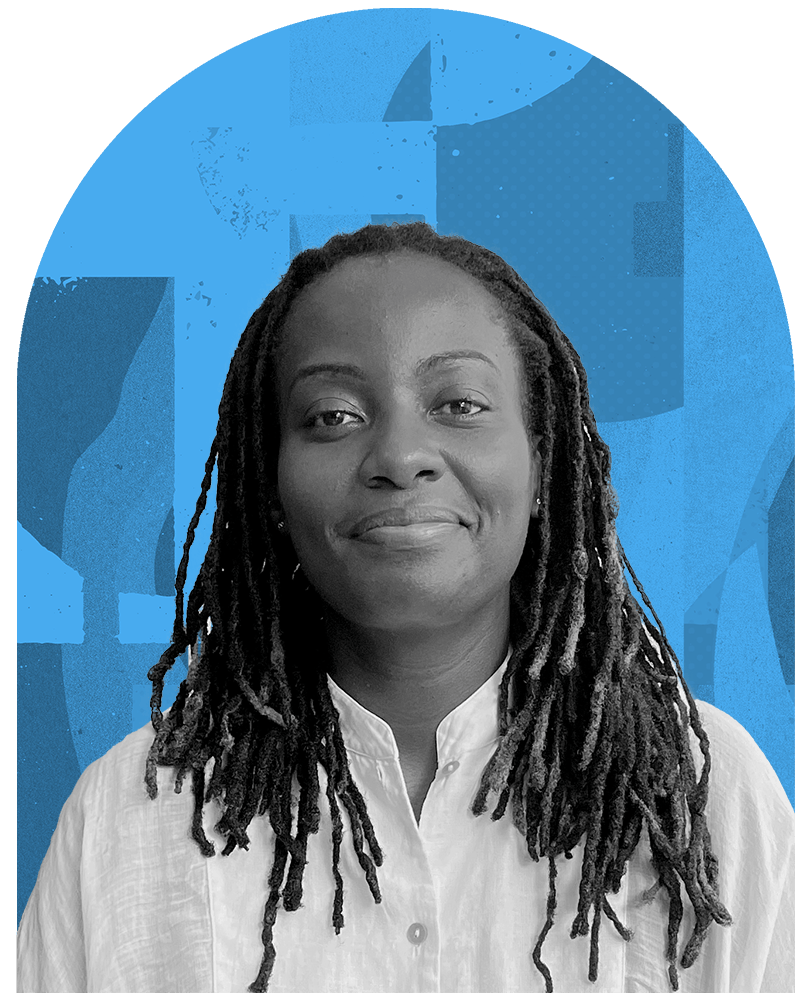
Clare Byarugaba
Equality and Non-discrimination Coordinator, Chapter Four (Uganda)
Risking prison time for standing up for LGBTQ+ rights, Clare Byarugaba is one of few openly LGBTQ+ activists in Uganda. She works with civil liberties organization Chapter Four, based in Kampala, and is also the founder of Parents, Families and Friends of Lesbians and Gays in Uganda, a project that facilitates open conversations between LGBTQ+ people and their families.
In 2023, the Ugandan government passed a “draconian” law that makes being gay punishable by life imprisonment or death. Byarugaba is at the forefront of the fight to overturn it, arguing that the law, “does not pass any constitutional litmus test .” In a recent interview, she said Uganda has witnessed the arrival of a new wave of “evangelical extremists” from the US who are spreading “dangerous rhetoric” about LGBTQ+ people, falsely alleging they plan to destroy the traditional family.
Academics
They may work in universities but their sphere of influence reaches far beyond. Gender studies have been reported to be under attack by anti-gender movements.
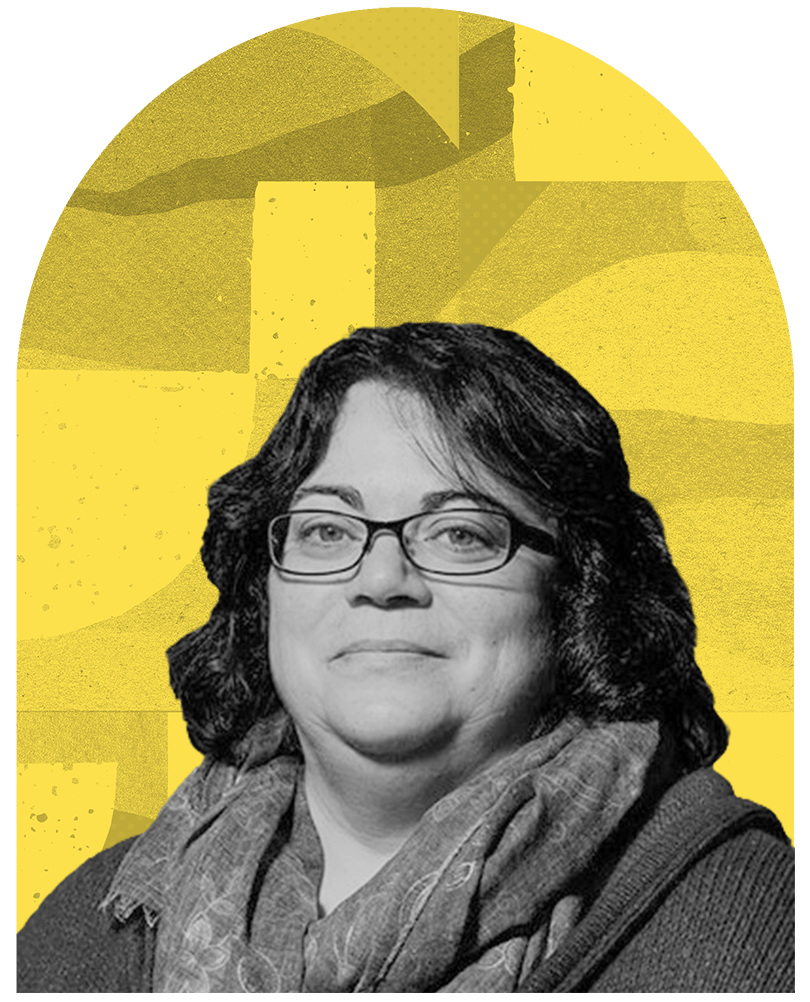
Mary McAuliffe
Director of Gender Studies at University College Dublin (Ireland)
Mary McAuliffe is Director of Gender Studies at University College Dublin where her research focuses on women and gender in Irish history. But McAuliffe is also a visible and vocal commentator about more contemporary struggles faced by women in Ireland, notably as Irish voters participate in two referendums on March 8 that propose changes to the constitution removing an article that effectively says a woman’s place is in the home (as the 1937 Constitution states) and expanding the definition of “family.”
Speaking to ABC Radio National, McAuliffe said the “woman in the home” article is “sexist and outmoded and outdated,” adding that the “language in the constitution really does needs to be updated in order to reflect modern reality of women’s lives.”
McAuliffe is the co-editor of an upcoming book entitled The Politics of Gender and Sexuality in Modern Ireland.
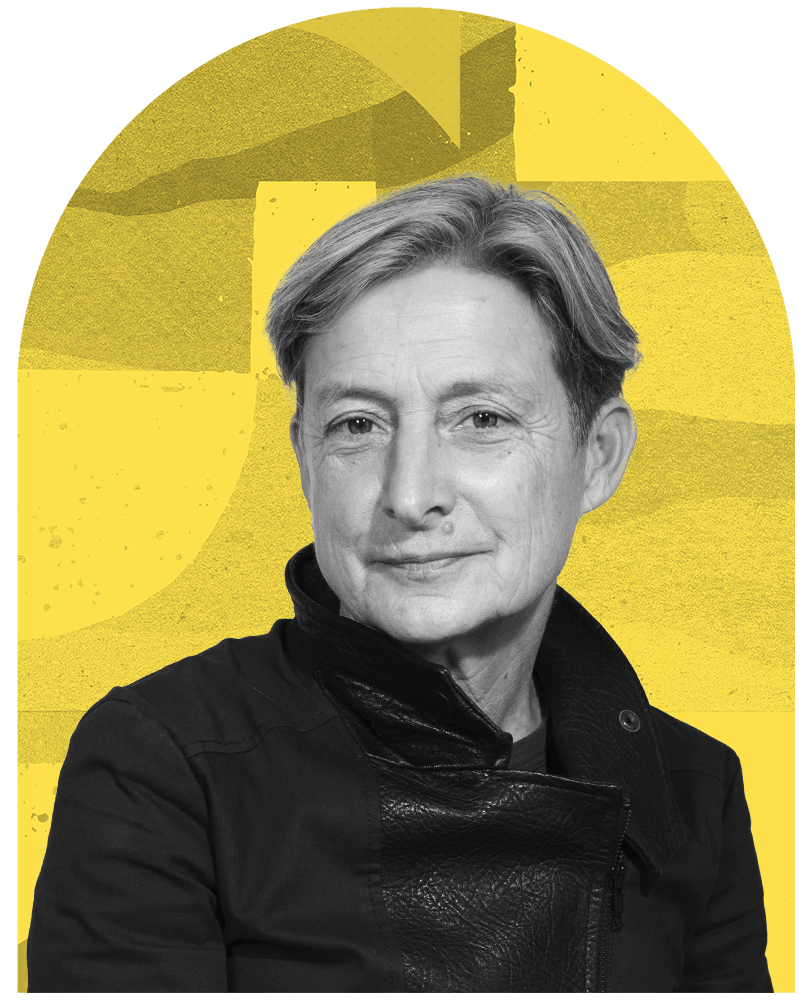
Judith Butler
Distinguished Professor in the Graduate School Department of Comparative Literature at the University of California, Berkeley (USA)
Judith Butler is a leading American feminist thinker, author of renowned books such as “Gender Trouble: Feminism and the Subversion of Identity” and “Bodies That Matter: On the Discursive Limits of Sex”, translated into more than 27languages.
As a philosopher and human rights activist, Butler has researched and written about the global backlash over women’s and LGBTQ+ rights, as well as the rights of people of color and migrants.
In their forthcoming book “Who’s Afraid of Gender?” Butler examines “how ‘gender’ has become a phantasm for emerging authoritarian regimes, fascist formations and transexclusionary feminists” and examines the “movement has sought to abolish reproductive justice, undermine protections against violence, and strip trans and queer people of their rights.”
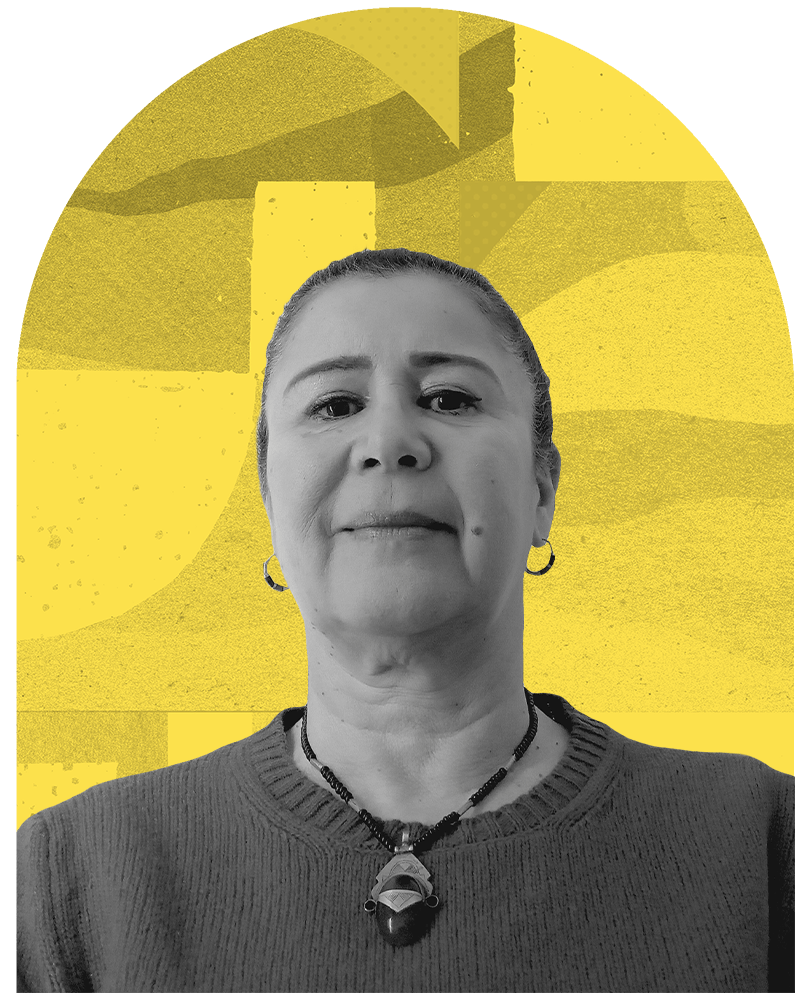
Amel Grami
Professor of Gender studies at the University of Manouba (Tunisia)
Amel Grami is a writer and professor of Gender Studies and Islamic Studies at the University of Manouba, Tunisia, who is known in the Islamic world as an advocate for women’s rights. For this work, she has faced harassment on social media and other violence.
Backsliding on women’s rights has been documented in Tunisia. In 2022, President Kais Saied introduced a law removing gender quotas that supported women’s representation in elected assemblies. The same year, he promoted a new constitution “to achieve the purposes of Islam in preserving the soul, honor, property, religion, and freedom.” Human Rights Watch warned that women’s rights would be adversely affected.
Grami tells CNN there is a growing strength in conservative forces “defending male privileges”.
Advocates
They are using the law to protect or expand rights for women and gender-diverse people. Our list of advocates also recognizes the strategists working to make change, often in terms of local, national or international policy.
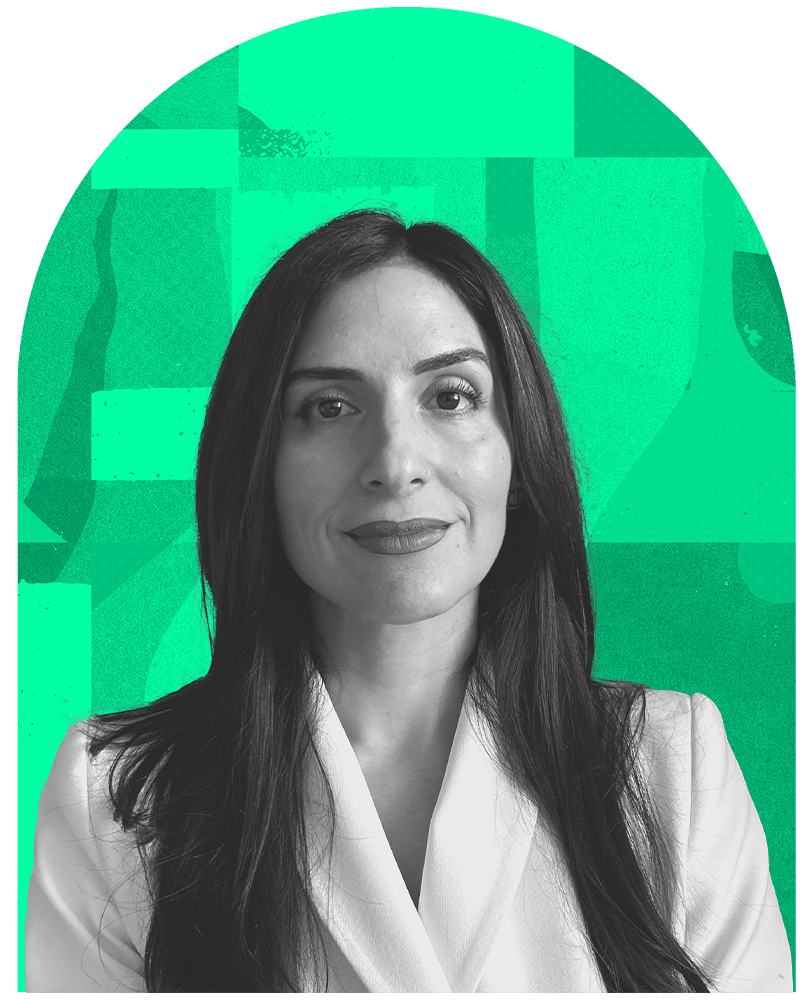
Gissou Nia
Director of the Strategic Litigation Project at the Atlantic Council (Iran)
Gissou Nia is a human rights lawyer who is backing a campaign to recognize gender apartheid – in Afghanistan and Iran – as a crime under international law. She has called gender apartheid in these countries “a system of governance that aims to compress and relegate Afghan and Iranian women and girls into narrow roles: as child-bearers, child-rearers, and sources of unremunerated domestic labor.”
Iran had witnessed nationwide protests that year following the death of Mahsa Amini while in police custody– arrested for allegedly violating the mandatory hijab law. Amnesty International found Iran’s security forces “used rape and other forms of sexual violence” against peaceful protestors.
Nia previously also worked on a campaign to have Iran removed from the Commission on the Status of Women, a UN body which exists to promote women’s rights. The campaign’s open letter to the UN amassed almost 100,000 signatures from Iran and across the international community.
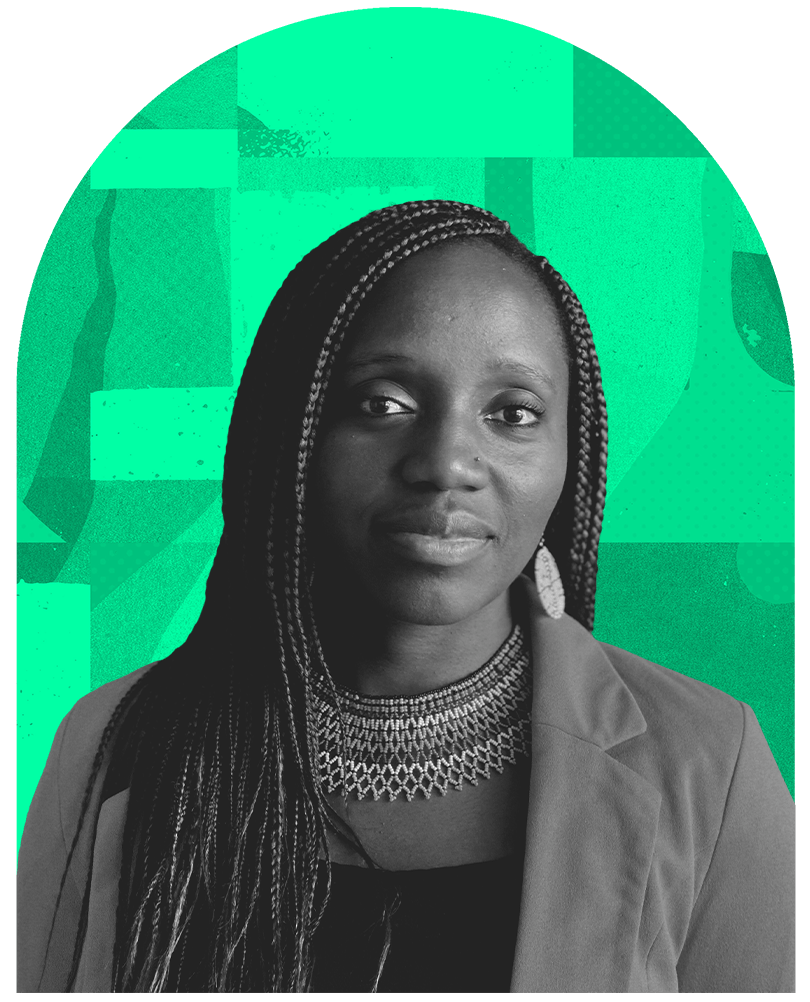
Angela Mudukuti
Legal Advocacy Director at Clooney Foundation for Justice (Zimbabwe)
Zimbabwean lawyer Angela Mudukuti is the Legal Advocacy Director for the ‘Waging Justice for Women’ program at the Clooney Foundation for Justice. The program uses strategic litigation – the practice of pursuing legal cases as a means of creating social change – to reform what is sees as “discriminatory laws” against women and girls.
Waging Justice for Women also campaigns to eliminate child marriage in the 146 countries where it’s still legal, increase accountability for gender-based violence and decriminalize abortion.
With Mudukuti’s advocacy, the program also aims to equip a new generation of young lawyers to provide legal assistance to women in Africa.
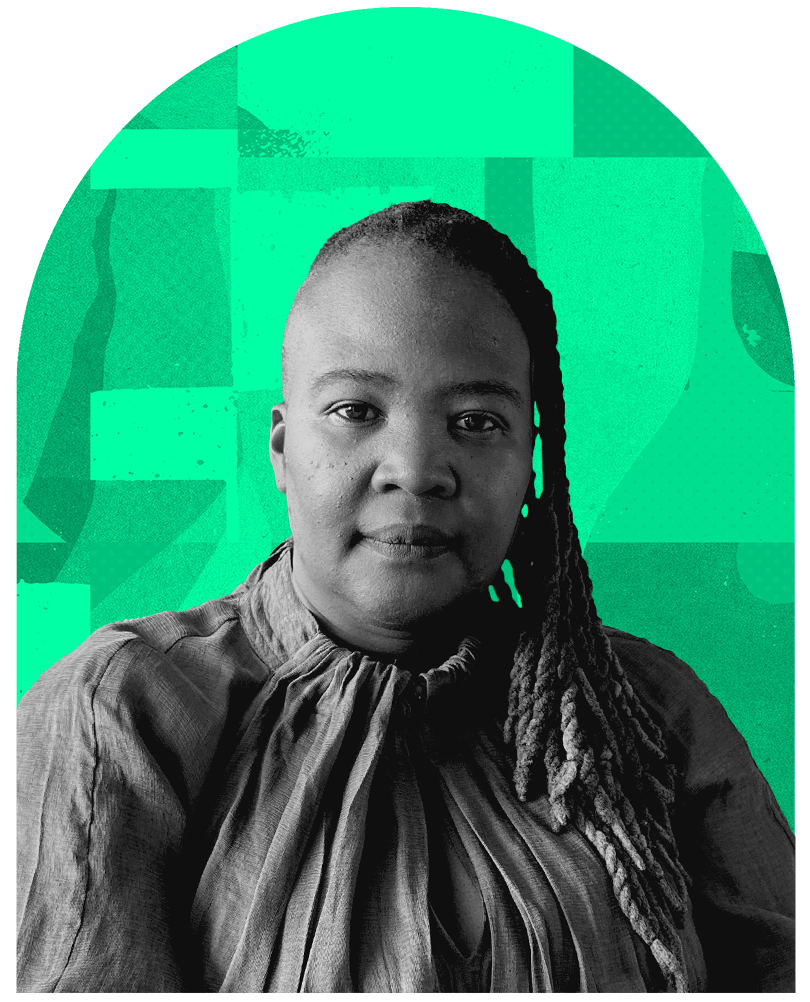
Sibongile Ndashe
Executive Director, Initiative for Strategic Litigation in Africa (South Africa)
Sibongile Ndashe is a lawyer and human rights activist who has dedicated her career to deploying the law as a tool to advancing the cause of women’s human rights and sexual rights.
Ndashe founded a pan-African feminist organization called Initiative for Strategic Litigation in Africa (ISLA) in 2014. The Johannesburg-based team works to highlight gender bias in laws across the African continent because, as ISLA puts it: “Despite continuing human rights violations, based on gender and sexuality, legal efforts to hold states accountable for these violations have been scant.”
Ndashe’s work has seen her faceoff with authorities not just in the courts. In 2017, she and other lawyers and activists were arrested in Tanzania where they met to discuss challenging a law that stops private health clinics from offering HIV and Aids services. They were accused of “promoting homosexuality”. After being detained for 10 days with no charge, they were deported, Ndashe told BBC.
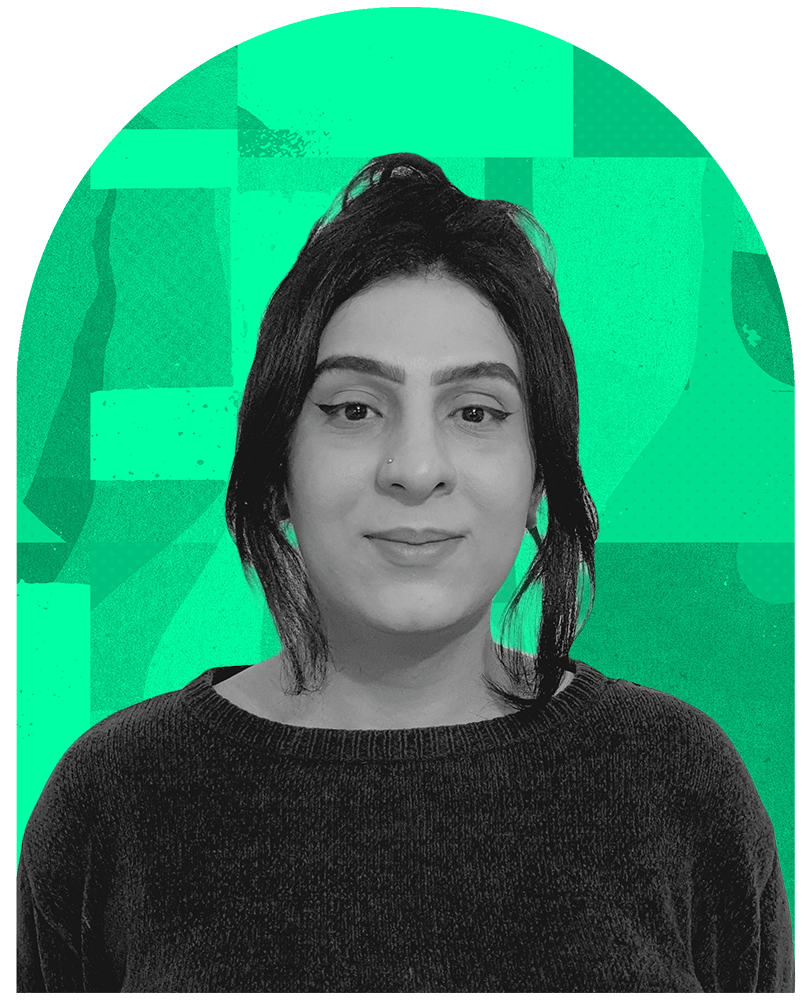
Malak El-Kashif
Transgender activist and Executive Director or Transat (Egypt)
Malak El-Kashif is 24-year-old Egyptian transgender activist who describes herself as a “feminist and defender of sexual and gender minorities’ right.” She is also the executive director of Transat, a non-governmental organization that aims to spread “scientific and cultural awareness” of gender issues in the Arab world.
In March 2019, after calling for protests in solidarity with the victims of a train accident in Cairo she was arrested and detained for four months in a men’s prison, where she says she suffered sexual harassment and discrimination. After her release, the activist filed a lawsuit demanding that cells be created to hold trans people in prisons and police stations.
El-Kashif is a rare voice in the country, where homosexuality is punished by imprisonment and transgender people face what Human Rights Watch described as “daunting obstacles to legal gender recognition.”
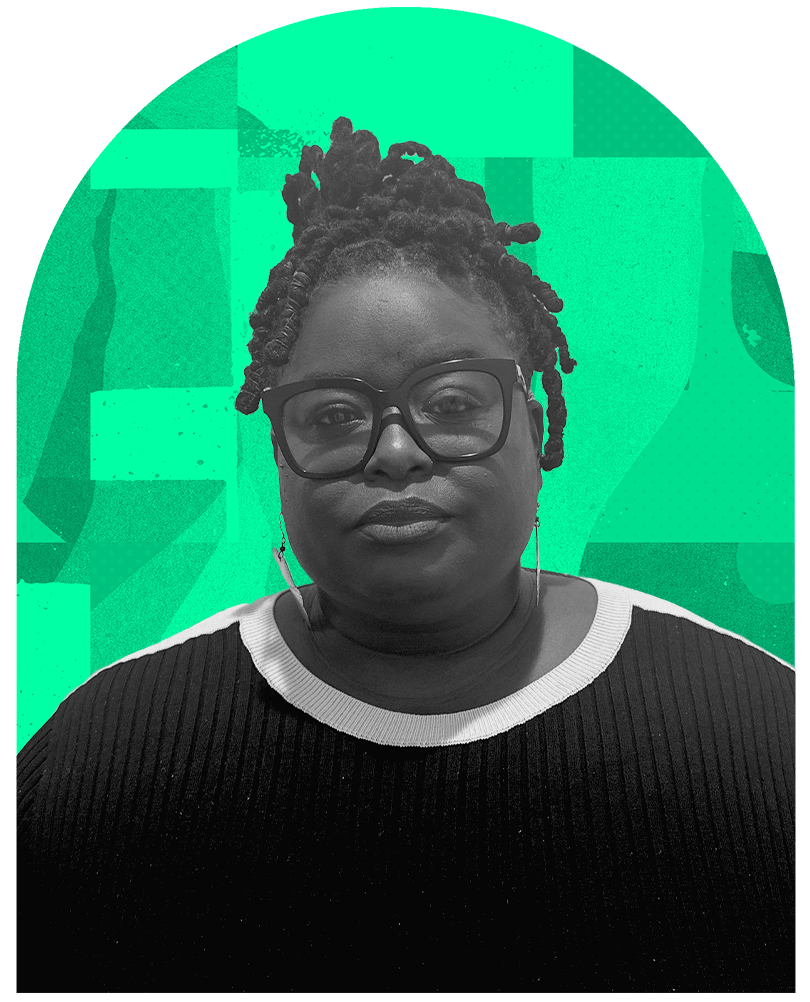
Monica Simpson
Executive Director of SisterSong (USA)
Monica Simpson is a queer Black activist with more than 20 years of experience fighting for the rights of women and gender-diverse people, often using music and art in her activism and organizing.
Based in the southern US, the mission of the organization she leads, SisterSong Women of Color Reproductive Justice Collective, is to “improve institutional policies and systems that impact the reproductive lives of marginalized communities.”
It has been widely reported that the decision to overturn Roe V Wade will disproportionately affect women of colour, and particularly Black women who, in 2022, made up about 40% of the women seeking abortion care in the US.
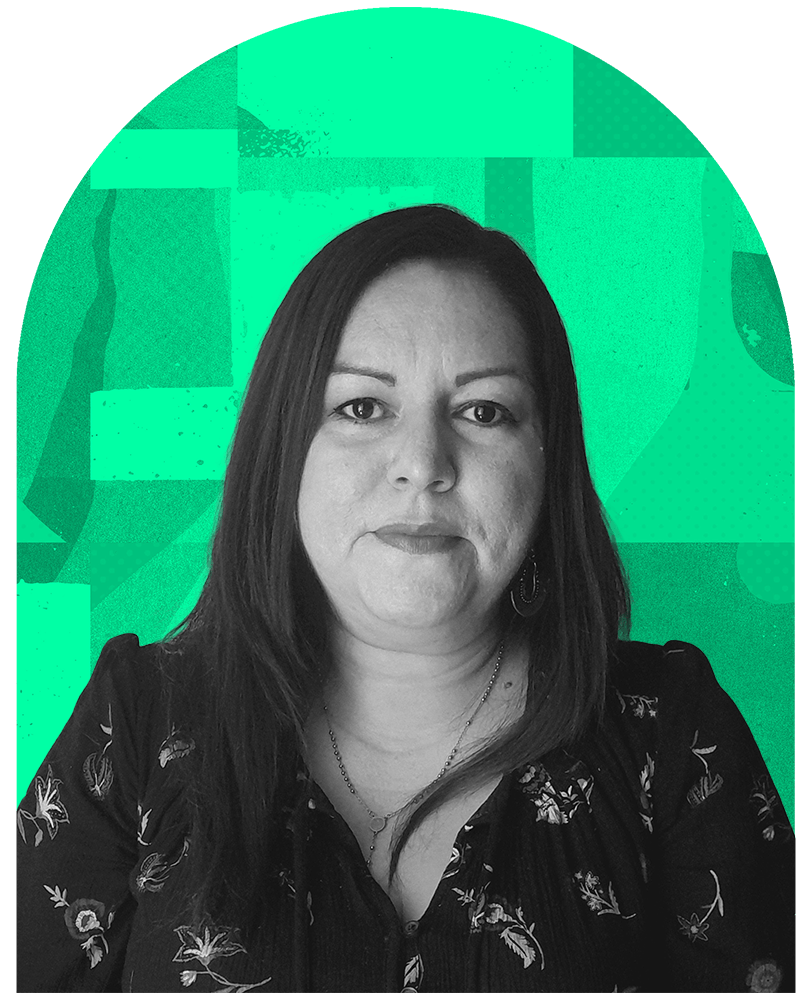
Griselda Mata
Co-coordinator of Catholics for the Right to Decide of Latin America (El Salvador)
Griselda Mata is creating awareness around how extremist religious groups are influencing governments across Latin America, particularly when it comes to abortion access.
She’s the co-coordinator of Catholics for the Right to Decide (CDD) Latin America and president of the organization’s El Salvador branch. CDD uses theological and feminist arguments to advocate for greater access to sexual and reproductive rights in a region where the Catholic church is losing followers to other Christian denominations, especially Pentecostalism.
Although some countries in Latin America have taken steps to loosen restrictions on abortion in recent years, the procedure is totally banned with no exceptions in El Salvador. Women there have even been convicted of crimes after suffering obstetric emergencies, including miscarriages and stillbirths.
Mata sees the advance of religious fundamentalism in Latin America as a threat, saying in an interview: “We are returning to times that we thought we would never return. Countries that had advances in terms of sexual rights, now do not have any.”
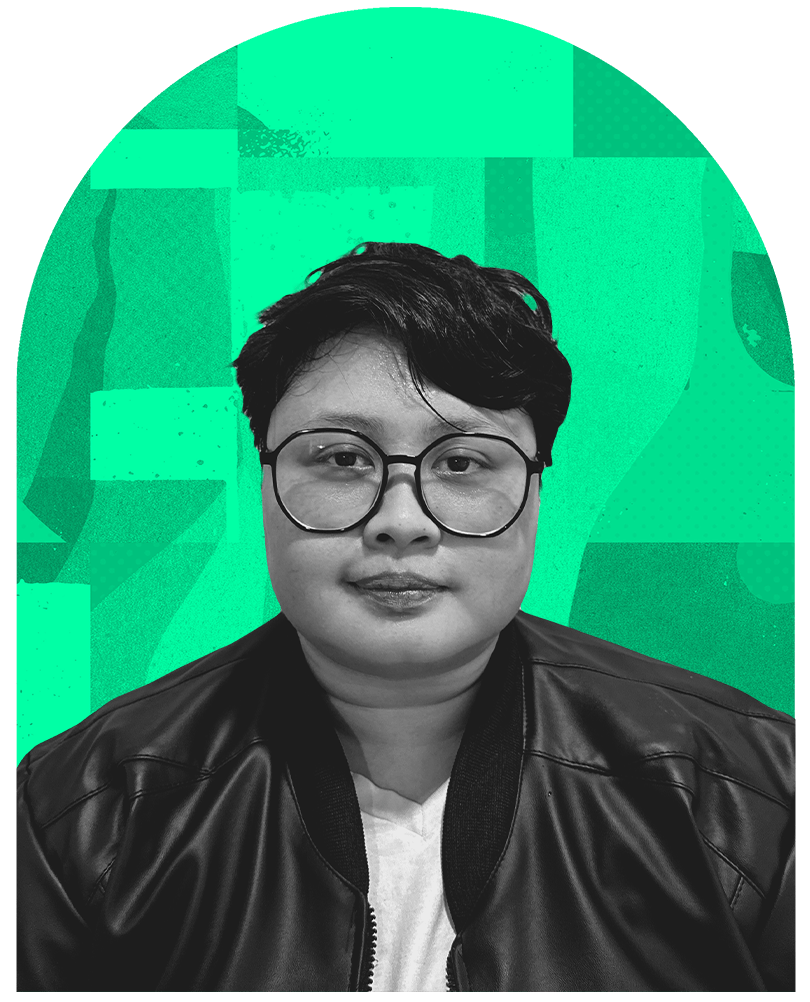
Riska Carolina
Lawyer and Secretariat Coordinator of Crisis Response Mechanism (Indonesia)
Riska Carolina is an Indonesian lawyer and human rights defender, specializing in sexuality law. In her role at CRM Consortium, she mobilized funds to support a team of 16 community paralegals across nine provinces in Indonesia addressing LGBTQ+ related cases.
In 2022, the Indonesian parliament passed a new penal code which Human Rights Watch says, “violates the rights of women, religious minorities” and LGBTQ+ people. Among other things, the code criminalizes sex outside marriage places restrictions on the right to access contraception and on freedom of speech.
Carolina has been critical of the new penal code, and the likely negative impacts for women, girls and the LGBTQ+ community, calling the revisions “cruel.”
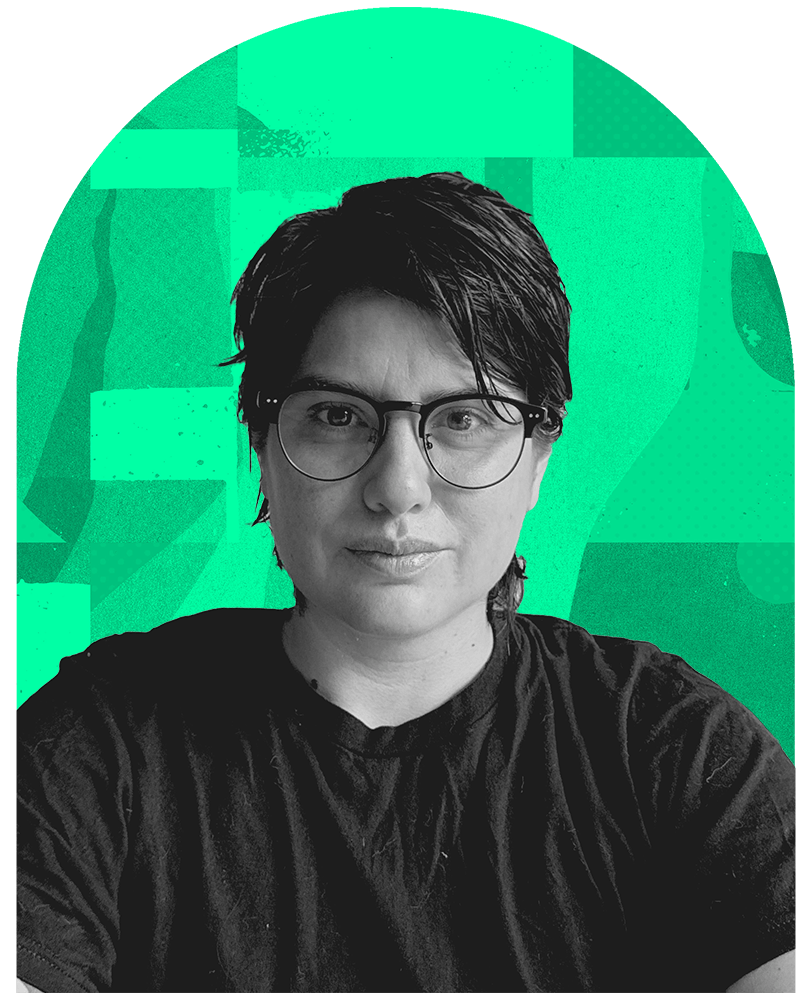
Estefania Vela Barba
Executive Director of Intersecta (México)
Estefanía Vela Barba is Executive Director of Intersecta, an organization that works to eliminate gender inequality by attempting to identify the sources of discrimination and human rights violations and by evaluating the effectiveness of public policies aimed at addressing discrimination.
Amongst other issues, Intersecta has campaigned against the gender pay gap and conversion therapies and has denounced how the militarization of public security in Mexico which endangers women and gender-diverse people.
Vela Barba has also used humour to great effect to raise awareness of gender inequalities. As part of “Estereotipas”, a comedy trio that produced YouTube sketches satirizing stereotypical extreme male behaviours. The group is credited with sparking the #MiPrimerAcoso social media campaign, where women shared their stories on social media about the first time they were harassed.
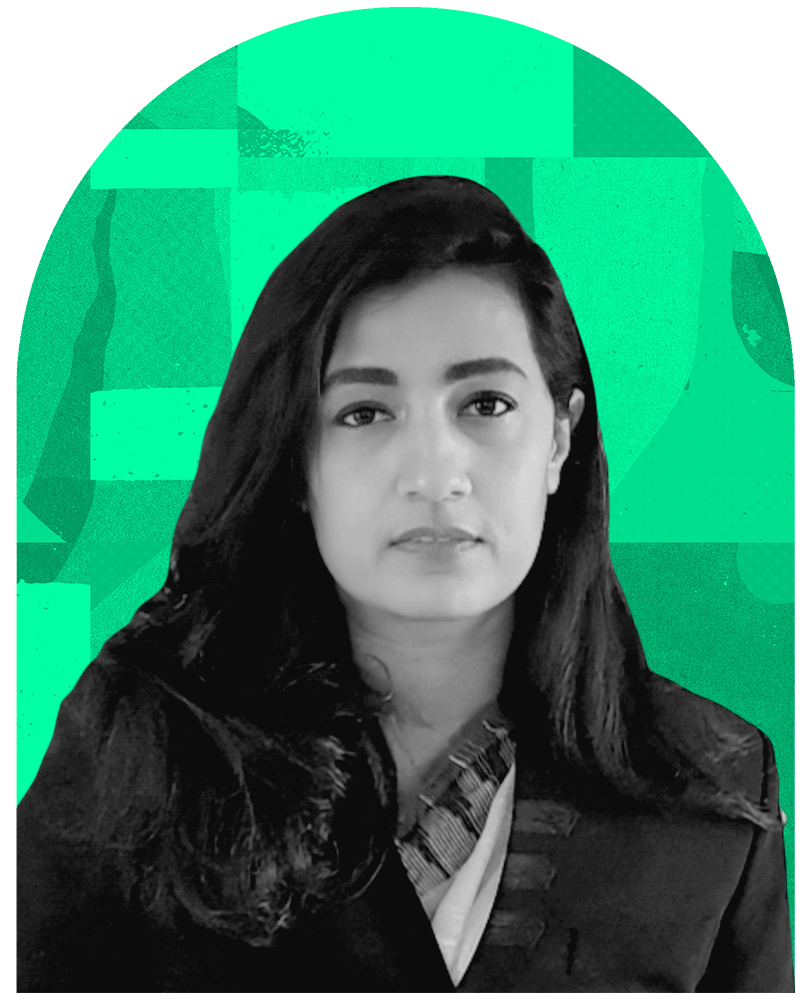
Karuna Nundy
Senior Advocate with the Supreme Court of India (India)
Karuna Nundy is an international human rights lawyer who is leading the fight to criminalize marital rape in India, one of few countries where it remains legal if a woman is over the age of 18.
But changing the law is an uphill battle, both in the legal courts (which returned a split verdict on whether marital rape should be criminalized) and in the court of public opinion: men’s rights activists have said women will misuse the law to falsely accuse men of rape.
In 2022, the human rights lawyer was named one of Time magazine’s 100 most influential people in the world and used the platform to share the story of a lesbian woman who was in a forced marriage and faced ongoing rape from her husband, explaining that she sees versions of this same story every day. She warned: “Patriarchy is coming back like a cancer and metastasizing in court judgements, at work and in the very spirits and bodies of women and queer folk.”
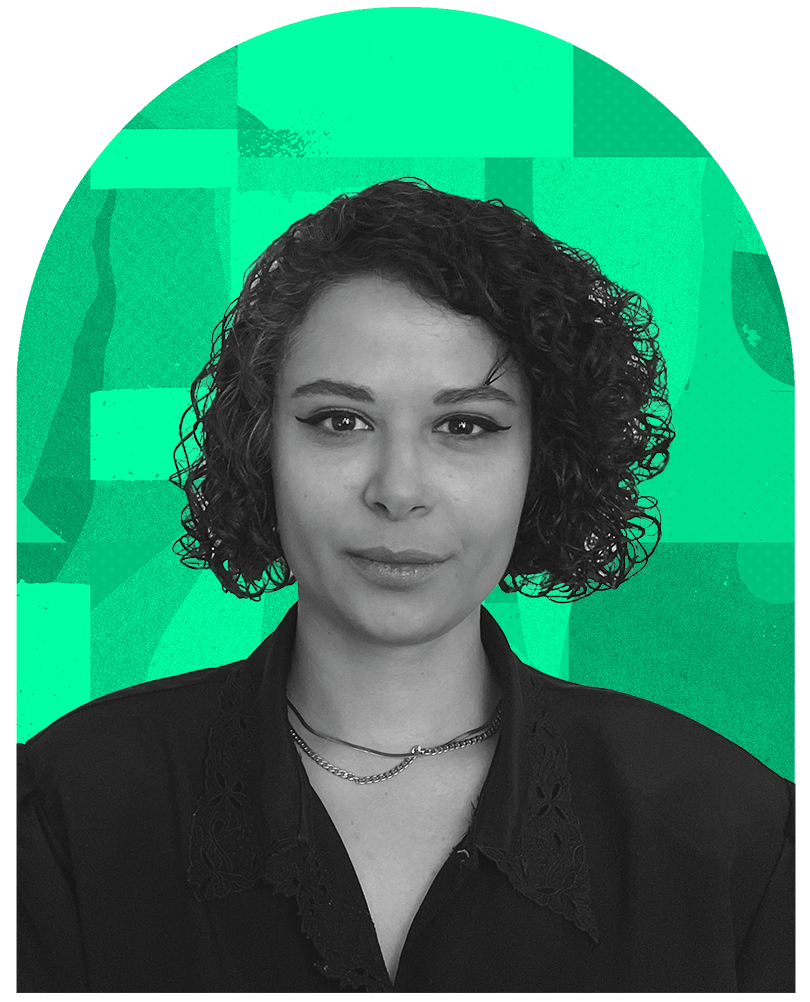
Rasha Younes
Interim Deputy Director of LGBT rights program at Human Rights Watch (Lebanon)
Rasha Younes works on the Lesbian, Gay, Bisexual and Transgender Rights Program at Human Rights Watch. She leads investigations into abuses against this community in the Middle East and North Africa, where she has long advocated for LGBT rights by putting a spotlight on the abuses and structural inequalities affecting people’s lives.
Rhetoric against this community has been reported to be on the rise across this region in recent years, with officials in Lebanon proposing bills to criminalize same-sex relations and what they describe as promoting homosexuality, while a draft bill in Iraq is proposing the death penalty for same-sex conduct.
Amid the extensive targeting of LGBT people online, Younes has also promoted a campaign calling on Facebook and Instagram to make their platforms safer for users from this community.
Catalysts
Whether providing funding, information, education or access to life-saving services and tools, the catalysts bring resources to bear in the pursuit of equality for women and gender minorities.
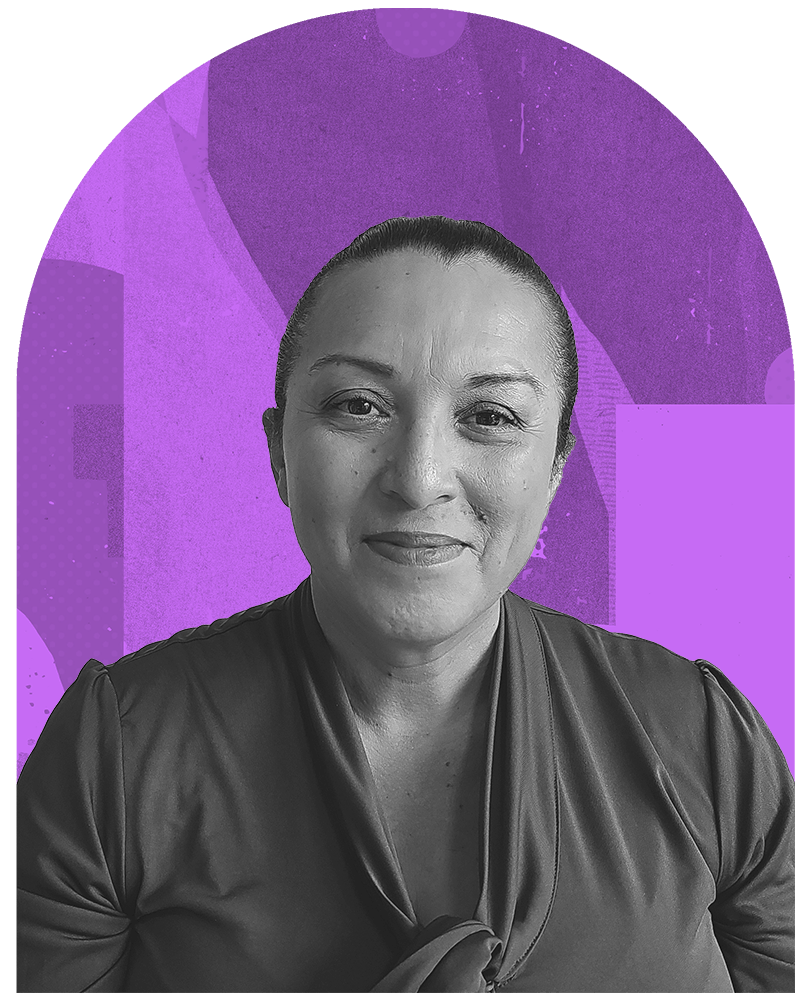
Erika Castellanos
Executive Director of Global Action for Trans Equality (Belize)
Erika Castellanos is a transgender HIV positive woman from Belize who lives in the Netherlands. She’s been committed to the rights of trans people, sex workers and people living with HIV since the 1990s.
In 2023, Castellanos became the executive director of Global Action for Trans Equality (GATE), an international organization working to end systematic discrimination and exclusion of transgender people.
GATE recognizes that LGBTQ+ people are threatened by the anti-gender movement and strategizes to build the community’s capacity to respond effectively.
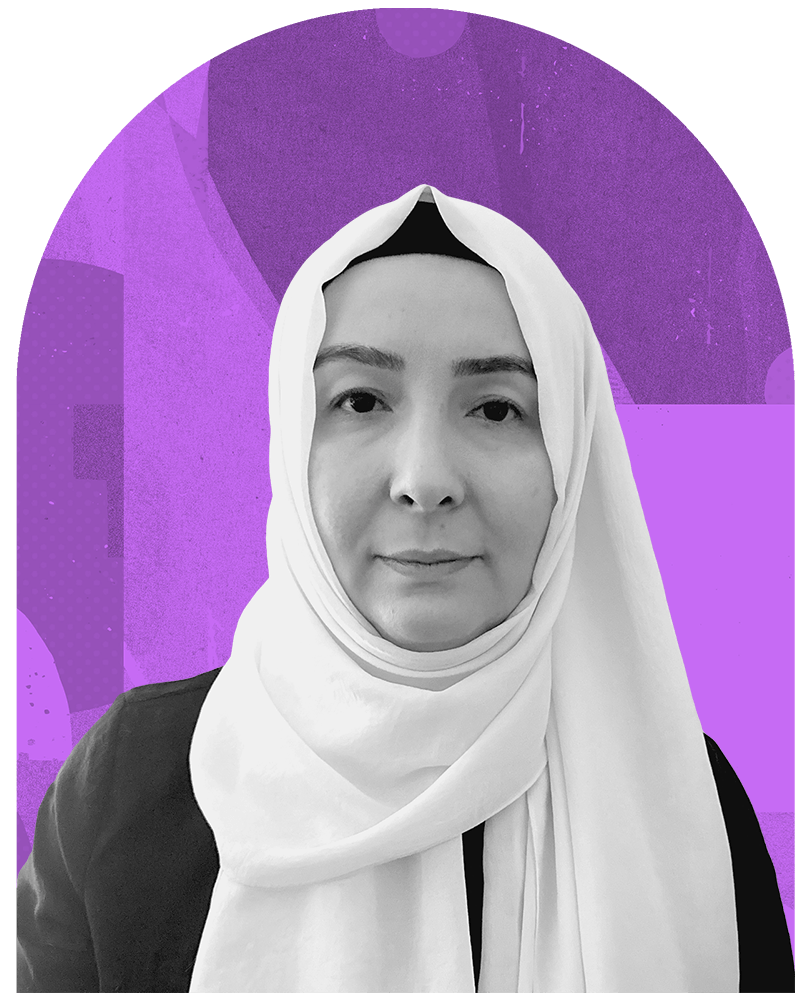
Ferhan Güloğlu
Coordinator Safe Birth in Palestine (Turkey/ USA)
Ferhan Güloğlu, a Ph.D. candidate studying anthropology at George Washington University, co-founded Safe Birth in Palestine shortly after the Israel-Hamas war started.
As of February 2024, there were 50,000 pregnant women in Gaza, according to the United Nations Population Fund. Conflict stress can lead to miscarriages and premature births for pregnant women, while babies are more likely to be born with low weights and greater risk of dying.
Safe Birth in Palestine helps pregnant women giving birth under emergency conditions in the besieged territory, providing instructional videos in Arabic and medical consultations from doctors through WhatsApp. It has managed to transport supplies such as vitamins to the Egyptian border with Gaza and works with a local network of midwives.
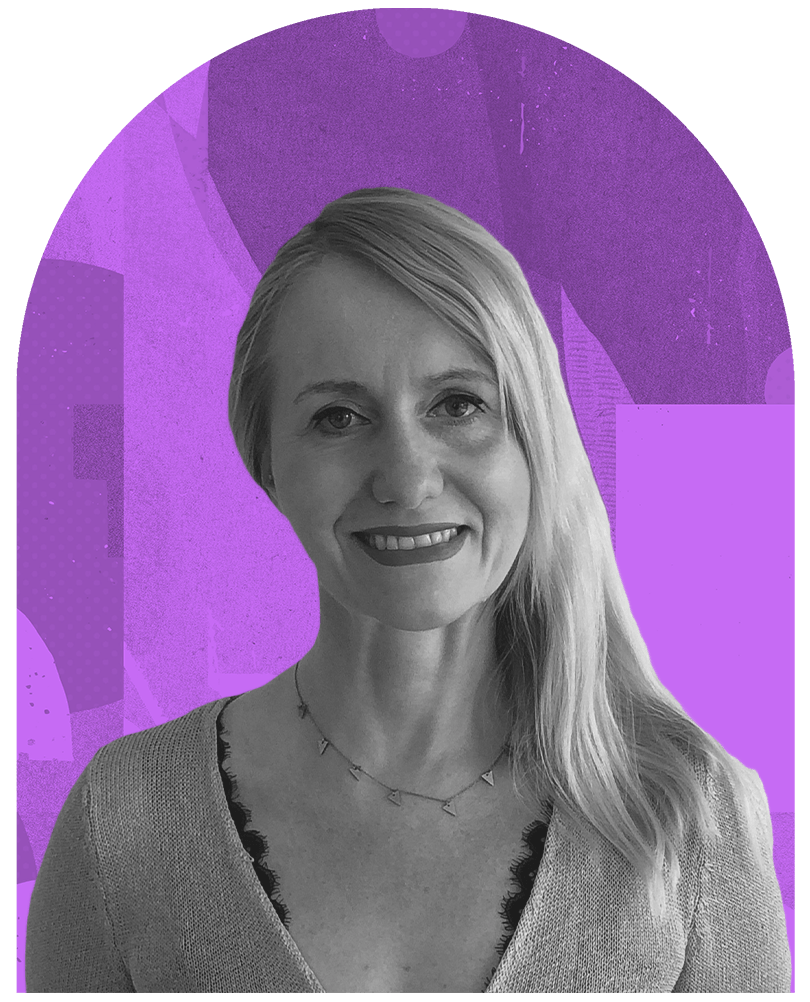
Kinga Jelinska
Executive Director of Women Help Women (Poland)
Born and raised in Warsaw, Kinga Jelińska is the Executive Director of Women Help Women, an international non-profit organization working on access to abortions where it is restricted by laws or stigma.
The group is part of the Abortion Without Borders (AWB), a pan-European network which through its web of volunteers and activists, works to arrange appointments at clinics and provide financial assistance to help meet the cost of the procedure and related travel for those who need to leave their countries to access an abortion after 12 weeks.
In Poland, where a near-total ban on legal abortion was ordered in 2020, those seeking medical care for miscarriages, legal medication abortions, or doctors involved in that care have been targeted by Polish authorities, according to HRW. The Netherlands has seen an influx of people from Poland seeking terminations, a number that’s risen further as Ukrainians displaced by war seek reproductive healthcare.
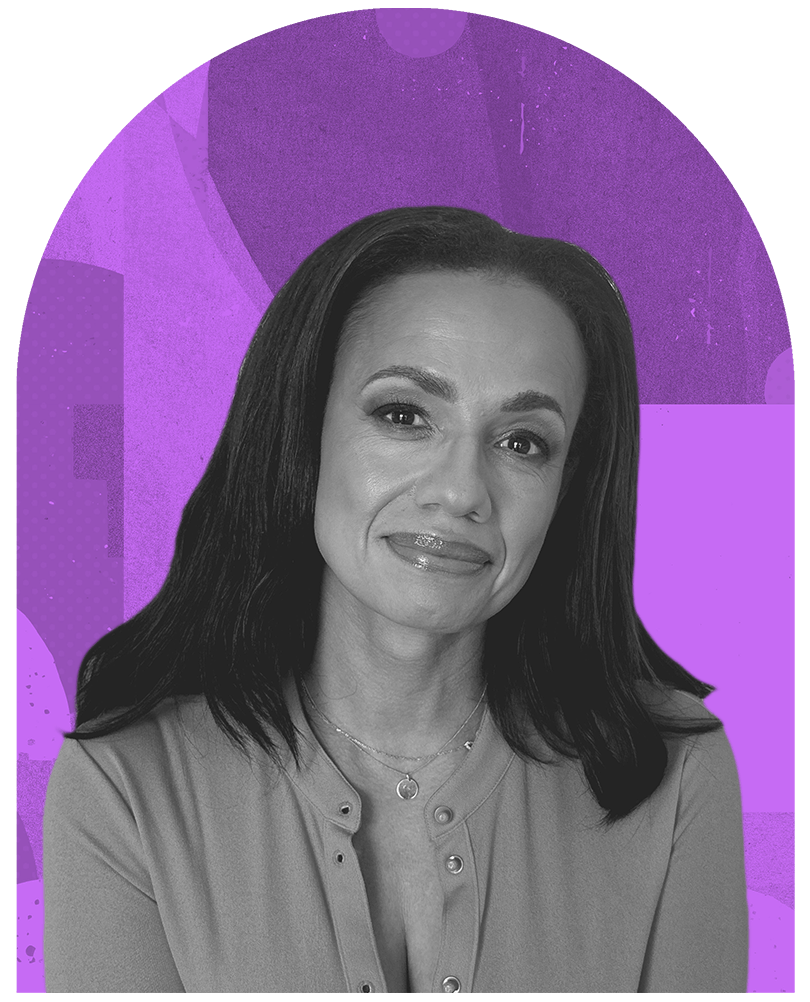
Alexis McGill Johnson
President and CEO, Planned Parenthood Federation of America and Planned Parenthood Action Fund (USA)
Alexis McGill Johnson is a social justice leader and the president and CEO of the Planned ParenthoodFederation of America. She is a vocal advocate for Black and marginalized community representation in reproductive and sexual health, and she co-founded and co-directs the Perception Institute, which combats bias and discrimination by translating the latest scientific research on race, gender, ethnic and other identities into solutions.
Nearly two dozen states have banned or severely restricted access to abortion since the US Supreme Court overturned Roe V Wade in June 2022, with potentially devastating outcomes for individuals with unwanted pregnancies. Abortion has become a defining issue in the upcoming US election and kept Planned Parenthood in the crosshairs of conservative politicians.
While Planned Parenthood is the single largest provider of abortion in the US, it also provides other services that anti-gender movements wish to stop, such as comprehensive sexuality education.
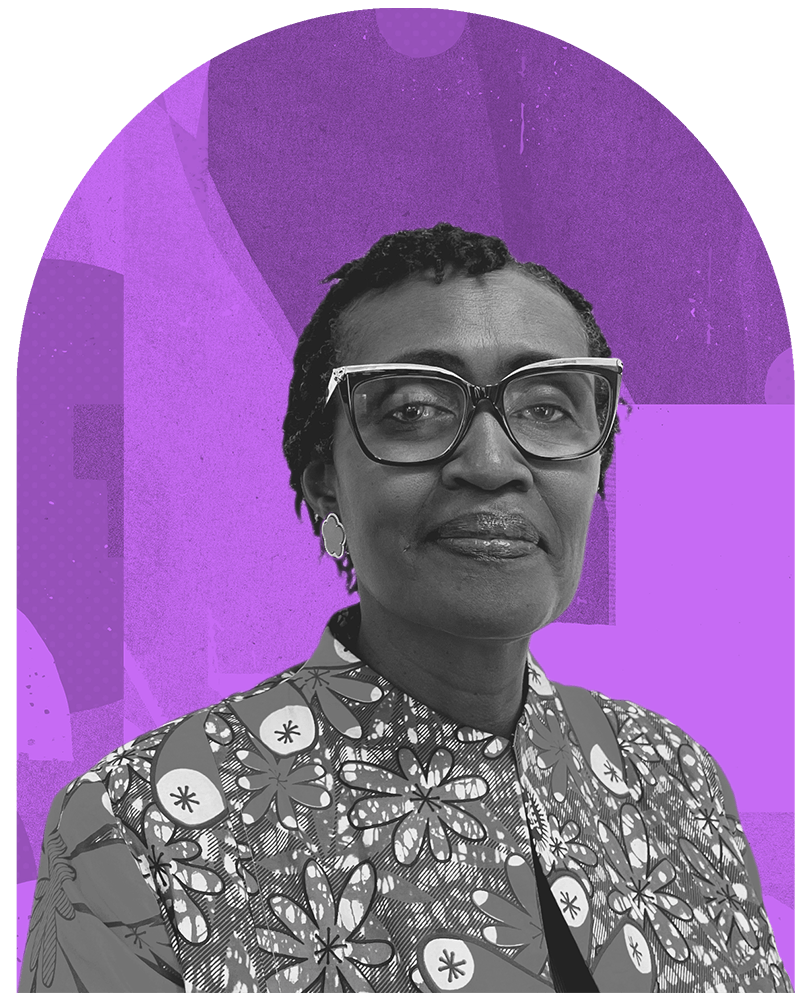
Winnie Byanyima
Executive Director of UNAIDS (Uganda)
Winnie Byanyima is the Executive Director of UNAIDS, with a long career working to address gender, health, and economic inequalities through advocacy and policymaking.
In her role at UNAIDS she has drawn attention to attacks on the rights of marginalized communities and how those attacks can impact public health. She has used her platform to shine a spotlight on barriers to accessing HIV prevention and care.
Speaking at a conference in February, Byanyima said of the “pushback” of women’s and LBGTQ+ rights: Many girls are not able to know what they need to protect themselves because they not allowed to have vital information: lifesaving comprehensive sexuality education.” Before adding: “Some parliamentarians are in overdrive to punish people for who they are and who they love.
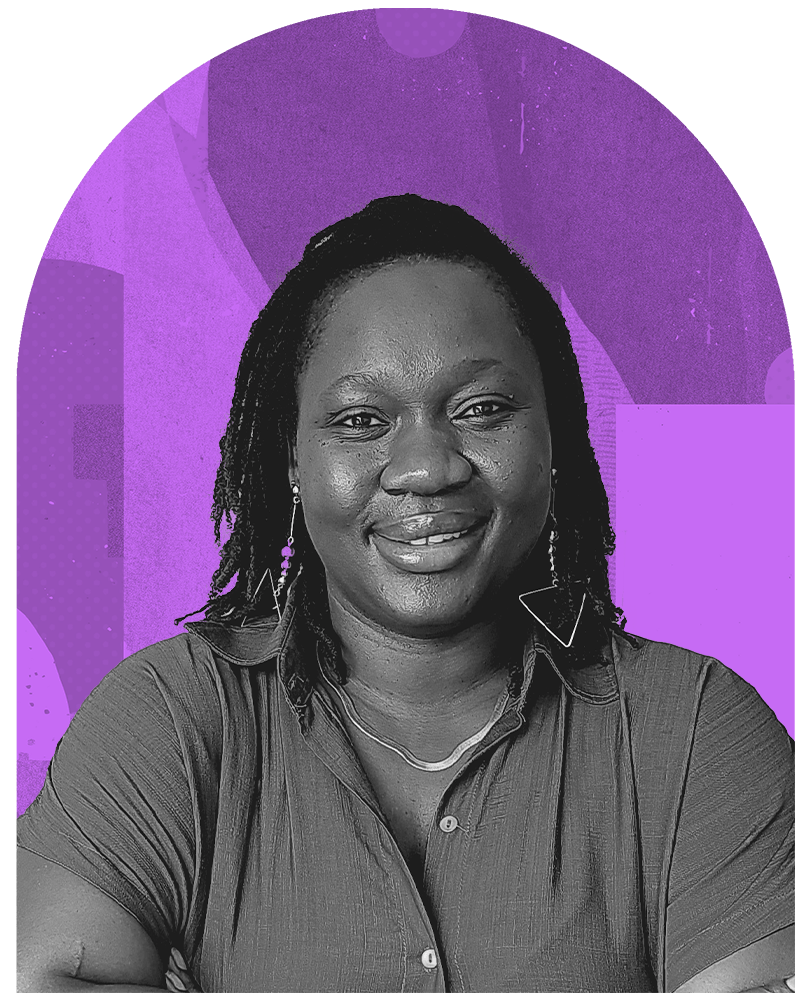
Fadekemi Akinfaderin
Chief Global Advocacy Officer, Fos Feminista (Nigeria)
Fadekemi Akinfaderin is the Chief Global Advocacy Officer of Fos Feminista, an international alliance focused on the sexual and reproductive healthcare and rights of women, and gender-diverse people.
Nigeria has one of the highest maternal mortality rates in Africa with 1,047 deaths per 100,000 live births. These poor health outcomes for women are not just caused by poverty or inadequate provisions of care but also by patriarchy: the lack of decision-making power or financial independence limits a woman’s ability to access the services she needs.
Akinfaderin has been vocal about these challenges facing Africa’s adolescent girls and women, both nationally and internationally. In 2022, after a Reuters report accused the Nigerian military of alleged forced abortions on victims of insurgency, Akinfaderin was one of the signatories to a joint statement asking the National Human Rights Commission to publish its findings on the alleged abuses by the state.
Creatives
Writers, podcasters or fashion designers, this group use their creative talents to raise awareness of the global gender backlash or simply assert the right of diverse sexualities or genders to exist.
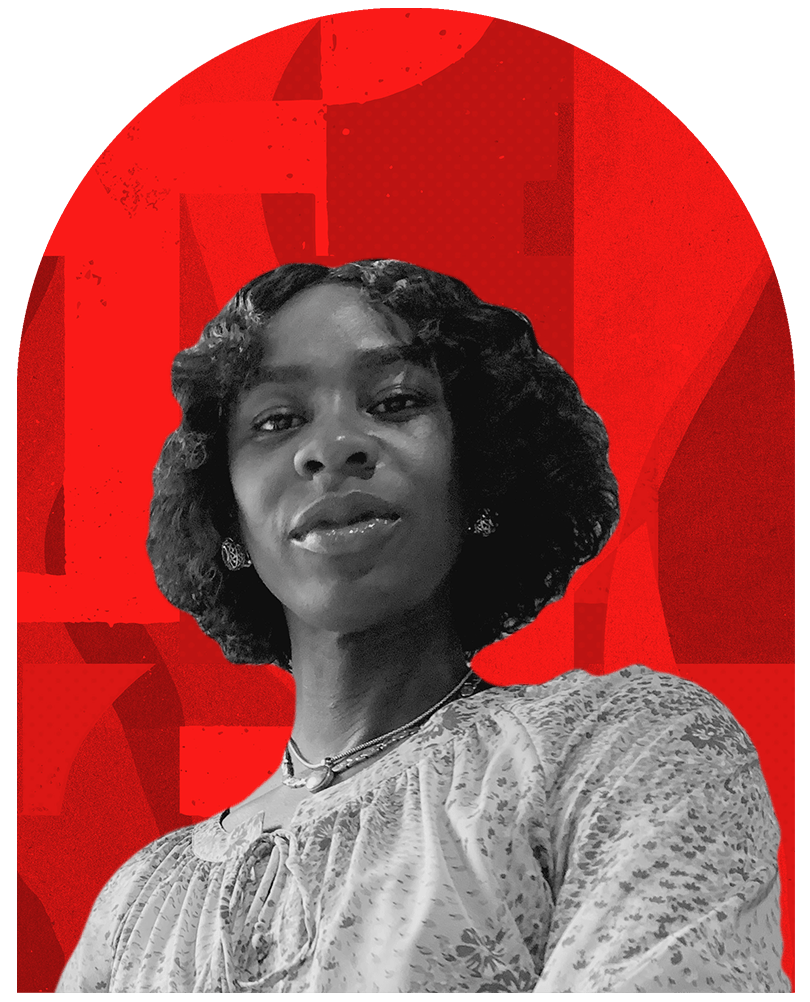
Emani Edwards
Co-founder of United Trans Creatives (Jamaica)
Emani Edwards is a creative director, model and co-founder of United Trans Creatives (UTC), a community representing Jamaican trans, non-binary, and LGBTQ+ persons through the arts. UTC says its “focused on breaking barriers by combining art, fashion, activism and social justice.” The collective also provides opportunities for trans Jamaicans to work as hairdressers, makeup artists, and photographers.
According to Lamar Grant, policy and advocacy manager at the non-governmental organization, TransWave, in Jamaica “transphobia [has become] a potent weapon wielded by those resistant to societal progress, heightening the vulnerability of trans Jamaicans who already face an elevated risk of violence and discrimination.”
Edwards, who moved to the US in 2022, continues to represent her community but life even for her remains difficult as housing has been precarious. She tells CNN: “It’s like the fighting will never stop. I don’t know if it’s ever going to stop.”
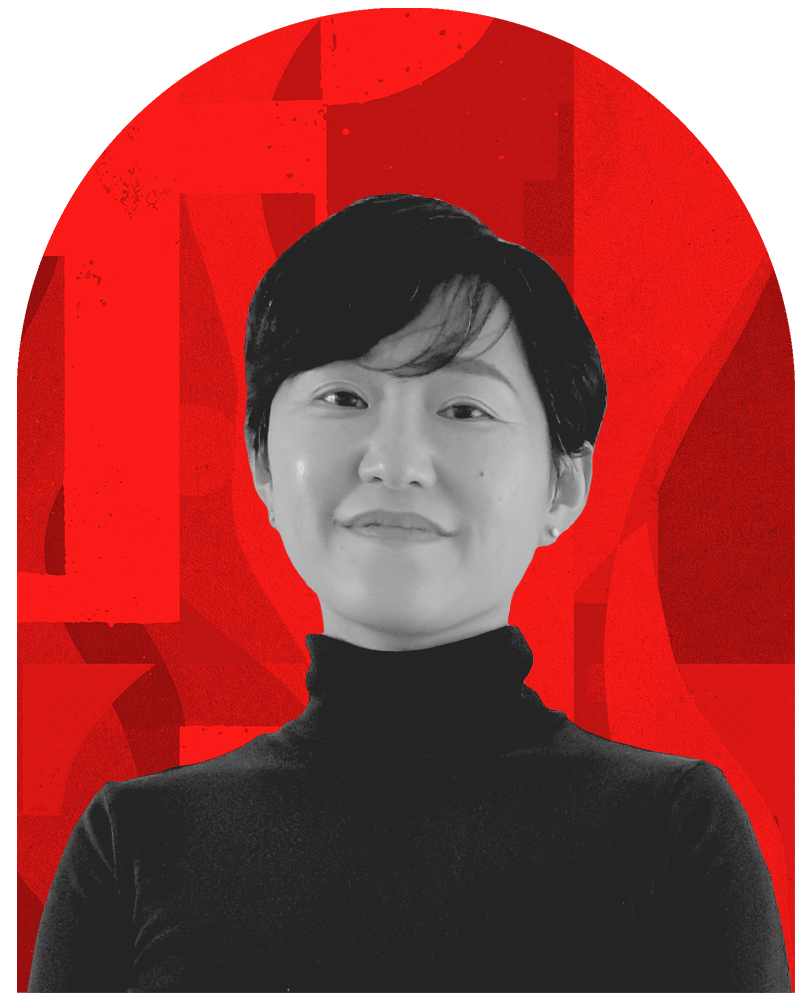
Hawon Jung
Journalist and author (South Korea)
Hawon Jung is a former Agence France-Presse Seoul correspondent who has covered gender inequality in South Korea extensively, including the country’s #MeToo movement and what has been described as its “gender war”.
The past several years have seen heightened backlash against gender equality in South Korea. As efforts to revisit a woman’s place in what has long been a male-oriented society, so too has opposition to feminism, culminating in the election of President Yoon Suk Yeol on an overtly anti-feminist platform in 2022.
In 2023, Jung published “Flowers of Fire”, in which she documents the feminist movements in South Korea and highlights women whose experiences “mirror realities that women across the world are all too familiar with: threats of defamation lawsuits to silence victims of assault, tech-based sexual abuse, and criminal justice systems where victims’ voices are often met with suspicion and abusers’ downfalls are met with sympathy,” according to the book’s description.
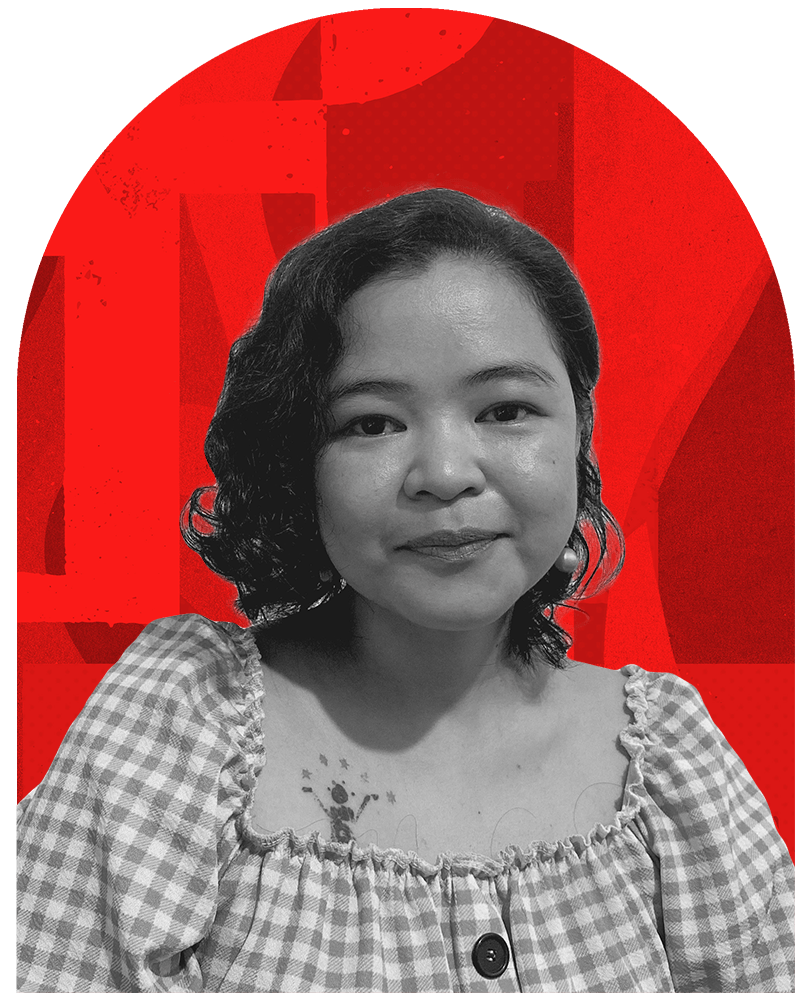
Faye Cura
Co-Founder of Gantala Press (The Philippines)
Faye Cura is a writer, curator, and co-founder of the non-profit Filipina feminist publisher, Gantala Press. Gantala uses its platform to publish work by some of the most marginalized groups of women in Filipino society: women farmers, fisherfolk, indigenous women and women political prisoners.
One such Gantala author is Amanda Echanis, a peasant woman organizer who was arrested in December of 2020, at a time when activists were being targeted by the government of former president, Rodrigo Duterte.
Duterte, who led the country from 2016 until 2022, presided over a controversial “war on drugs,” which police say claimed the lives of thousands of people, including children. He was known for curtailing press freedoms and making sexist jokes and comments that trivialized rape, further normalizing misogyny in Filipino culture.
Cura is helping to document on-going state-supported gender discrimination in the Philippines and is working to change the under-representation of women in Filipino literature.
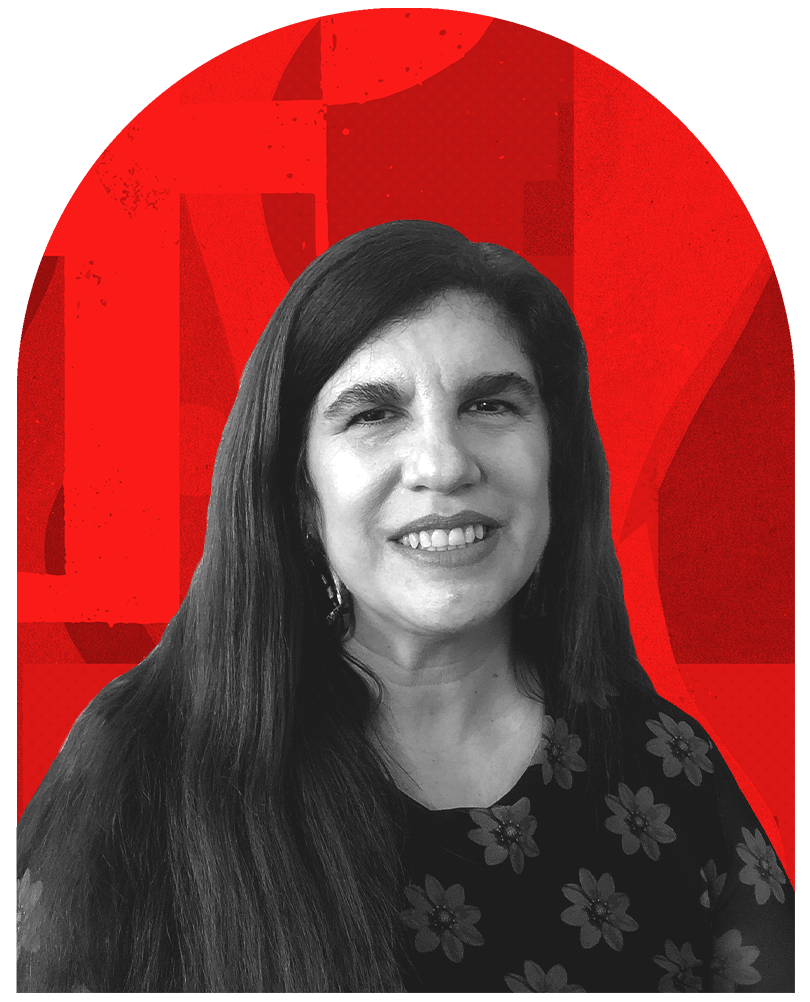
Luciana Peker
Journalist and Author (Argentina)
Luciana Peker is considered a feminist authority in Argentina having spent the past 20 years writing and reporting on gender, sexuality, femicide and abortion rights in the region.
Since the end of 2023, she has been living in self-imposed exile, which she says is due to a fresh wave of extremist threats against feminist journalists in Argentina following the election of far-right libertarian, President Javier Milei. She has been outspoken on the rise of anti-feminist extremism in the region and has writtenabout how feminism in Argentina is “under attack.” On February 27, a presidential spokesperson announced that Milei had banned gender-inclusive language in all official government documents.
Peker was also part of the initial Ni Una Menos (Not One Less) movement against femicide founded in Argentina in 2015.
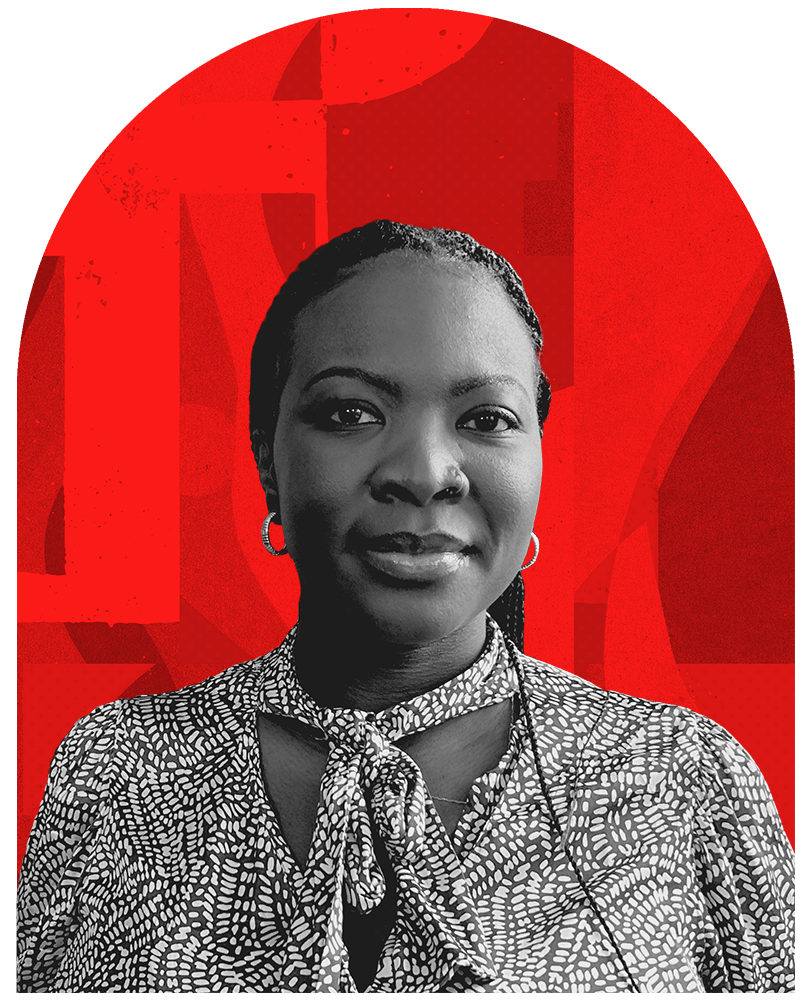
Stephanie Musho
Aspen New Voices Senior Fellow (Kenya)
In 2022, human rights lawyer and podcaster, Stephanie Musho, released a six-part show taking aim at local lobbying organizations and religious groups with international connections that she says are undermining changes to Kenya’s 2010 Constitution that enshrined a Kenyan’s right to reproductive health.
As many countries in Africa push to restrict or even criminalize LGBTQ+ rights, in The New Cold War Musho tackles what she asserts is the connection between anti-LGBTQ+ actors and those who wish to limit women and girls’ rights: the perception that gender and reproductive freedoms and choice are a threat to “family values.”
